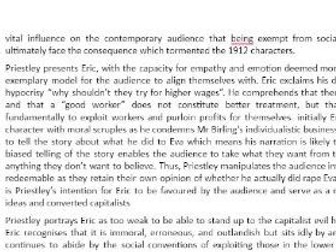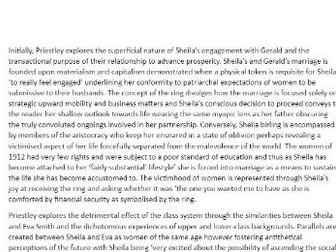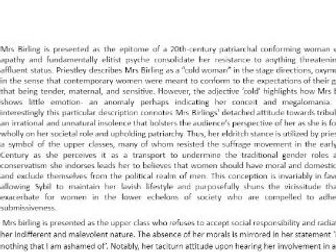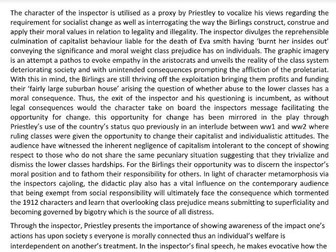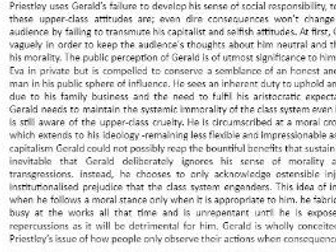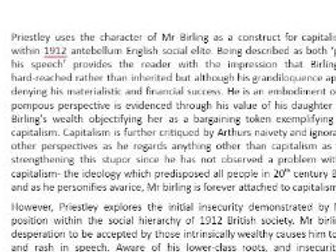An Inspector Calls- Eric Birling
Priestley presents Eric, with the capacity for empathy and emotion deemed morally superior and an exemplary model for the audience to align themselves with. Eric exclaims his discontent with such hypocrisy “why shouldn’t they try for higher wages”. He comprehends that there is no meritocracy and that a “good worker” does not constitute better treatment, but that capitalism exists fundamentally to exploit workers and purloin profits for themselves
